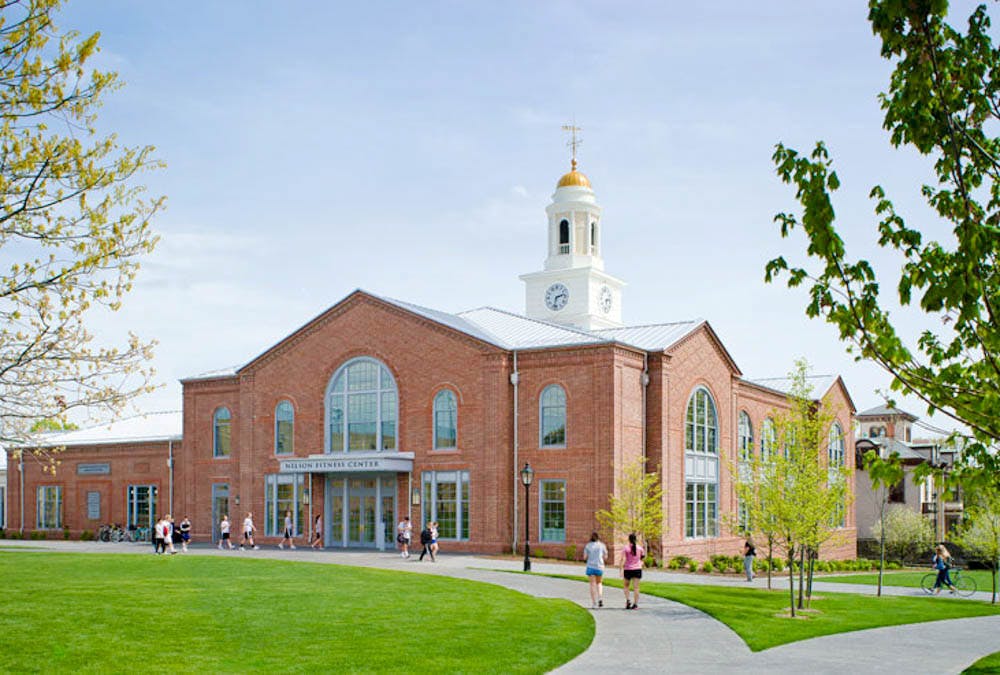As COVID-19 continues to leave its mark on collegiate athletics, teams at Brown must navigate another round of Quiet Period restrictions while also integrating first-years who were required to study remotely in the fall. Many members of the Brown athletic community went through Quiet Period last fall, but for first-year athletes arriving on campus for the first time in their college careers, the restrictions add to an already unfamiliar environment.
When coming to College Hill for the first time, men’s lacrosse player Kevin Sweeney ’24 said he was not prepared for the quick transition to a pandemic-defined athletic experience.
“The hardest thing to adapt to has definitely been the lack of training accommodations,” Sweeney said. “It’s tough to be a college athlete and only limiting yourself to dorm room workout(s).”
Quiet Period regulations limit access to certain training equipment, and outdoor recreation is limited while students returning to campus isolate in order to limit the spread of COVID-19.
First-year students aren’t the only new faces on campus this semester. Gymnast Carolanne Van Zandt ’23 returned from studying at home last semester and is now living in a top floor suite in the Omni Hotel.
“The transition has been interesting to say the least,” Van Zandt said. “Moving 1,500 miles from home and going immediately into isolation is tough considering how much I love spending time with people.”
With her gymnastics season already cancelled, Van Zandt said that it has been difficult to come to grips with the lack of participation in a sport that usually takes place year round.
Gymnastics Coach Sara Carver-Milne echoed this sentiment. The team last trained in a gym in March 2020. “Not only has that been a hardship to deal with for our training, but recruiting has been shifted to live streamed competitions due to outbreaks in gyms that have forced them to shut down.”
While a return to in-person athletics is currently up in the air, Carver-Milne shed light on what this uncertainty means for the gymnastics team’s intentions moving forward. “Right now we are focusing heavily on mental health and the acclimation of first-years into the team morale,” she said. “They already had a head start with training as they did their best to work at their hometown gyms last semester.”
In addition, the eight upperclassmen athletes on campus last fall had to adapt to COVID-19 restrictions while maintaining “a team GPA of 3.788” Carver-Milne said. “Now it’s time to introduce the first-years to that same mental toughness. I am proud to say that everyone has handled their given situation with grace and persistence.”
Other fall athletes have adopted a similar mindset while coping with the loss of their seasons.
Field hockey midfielder Ana Claire Piacentini ’23 praised her team’s positivity throughout the pandemic. Encouraging one another to integrate the first-years into the team and stay in shape has been imperative to the long term goals of the team, she said.
Through “Zoom we’ve been able to construct our goals in a concise and unified manner,” Piacentini said. “This not only amplifies our positivity for the team as a whole, but it definitely helps integrate the first-years into the team systems.”
Zoom has also helped first-year athletes like Sweeney continue to acclimate to an ever-changing environment and its restrictions, while also working to bond with the new teammates that they have only met virtually. It is through these Zooms, Sweeney said, that team members have continued to connect with each other.
“We’ve heard from the seniors a lot and they have been nothing but welcoming,” Sweeney said. “In the event that we do have a season, I hope we have the ability to not only compete for us, but compete for them. They definitely deserve the opportunity to play.”

ADVERTISEMENT




